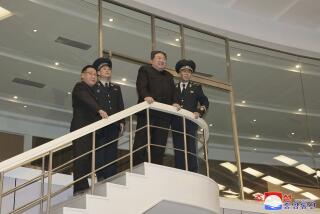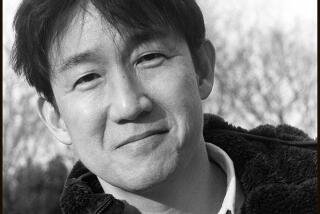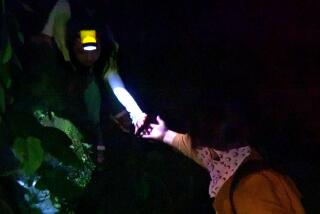There’s no such thing as a failed missile launch: Lessons from North Korea, the post-truth capital of the world
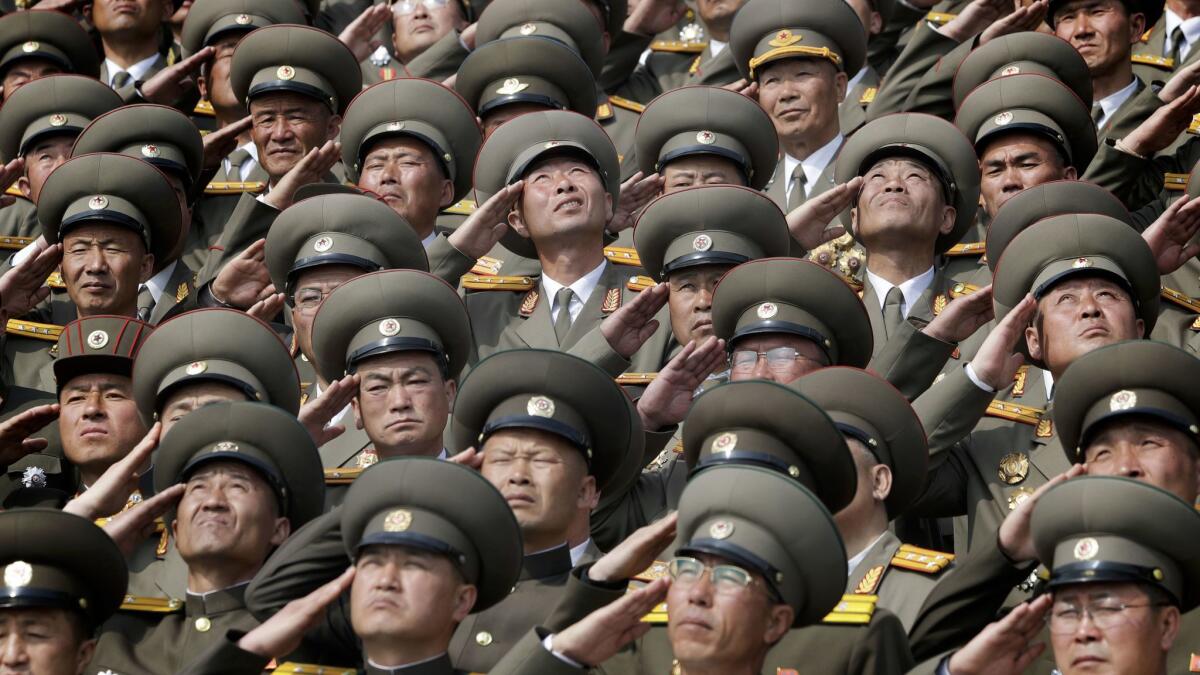
All afternoon we obsessively checked our phones, seeking a reason — or even a clue — as to why North Korea wouldn’t let us leave.
I was among roughly two dozen foreign correspondents, tourists, and diplomats waiting at the Pyongyang airport’s departure gates on Monday. Our flight to Beijing was scheduled for 8:30 a.m.; now it was nearly 4 p.m., and as the evening loomed, the question felt increasingly urgent. We had no explanation for the delay, and no information on rescheduling. Soon, as we exhausted the limited cellular data allotted by our exorbitantly expensive North Korean plans, we would have no connection to the outside world.
Saturday was the most important day on the North Korean calendar — the 105th birthday of its founding president, Kim Il Sung. His grandson, Kim Jong Un, planned to preside over a massive military parade in Kim Il Sung’s honor, and the North Korean government invited about 100 foreign journalists to attend. It clearly intended to send a dark but unambiguous message to the outside world: that the country was well-armed, unfazed by U.N. sanctions over its budding nuclear program, and prepared to go to war with the U.S.
It clearly intended to send a dark but unambiguous message to the outside world.
All week, the mood was tense. The U.S. had reportedly dispatched a naval strike group to the Korean peninsula, and there were reports that officials were considering a preemptive strike. (It would later turn out that the naval group was headed in the opposite direction.) North Korea threatened to retaliate, raising the specter of nuclear conflict. “We will go to war if they choose,” a high-ranking North Korean official told the Associated Press.
So at the airport, we puzzled over the delay and feared the worst. We ruled out the weather, unofficial Chinese government measures, and a mechanical issue with the plane — Pyongyang and Beijing both had clear skies, and a flight from Pyongyang to the Russian city of Vladivostok was also grounded. Several people waiting had visited North Korea on multiple occasions, and they were equally perplexed.
Rumors flew. What if the government had closed its airspace for a missile test? What if it didn’t want us to leave? Suddenly, just after 4 p.m., the departures board went dark, and the group went quiet.
‘Liberation of the fatherland,’ then sandwiches
On April 12, I flew from northeastern China to Pyongyang on Air Koryo, North Korea’s state airline. About a half-hour after takeoff, a flight attendant announced that we had entered North Korean airspace. “Our President, Kim Il Sung, came across the river with great ambition for his country,” she said in English. “It reminds us of his revolutionary exploits in his liberation of the fatherland.” She then distributed sandwiches.
Since the late 1940s, the Kim family has ruled North Korea with an iron fist — hundreds of thousands of political prisoners have died in its vast network of internment camps, according to best estimates. Any sign of dissent, or even disillusionment, can carry unspeakable consequences.
Its capital, Pyongyang, is a city of clean streets and modest apartment blocks. It’s also an urban testament to a personality cult so entrenched that it subsumes many aspects of its residents’ daily lives. Golden statues of Kim Il Sung and his son Kim Jong Il, the country’s ruler from 1994 to 2011, tower over the city. Their smiling portraits stare out from socialist-style edifices, living room walls, and red lacquer badges that all North Korean adults are required to wear in public, on their left lapels over their hearts.
Each journalist was assigned a government minder. We were not allowed to report, or even leave the hotel, on our own. On Thursday, my minder — Kim Jin Hyok, 27, a handsome Foreign Ministry employee — roused me at 4 a.m. for an “important event,” and instructed me to leave my phone and computer in the hotel room.
Bleary-eyed, the journalists stumbled onto our buses, spent four hours in a security line — every bag, every camera, every pocket was scoured — and arrived at a huge, empty square. At one end was a red-carpeted stage, and behind that, Ryomyong Street — a row of gleaming new high-rise residential buildings that, according to North Korean media, were built within a year.
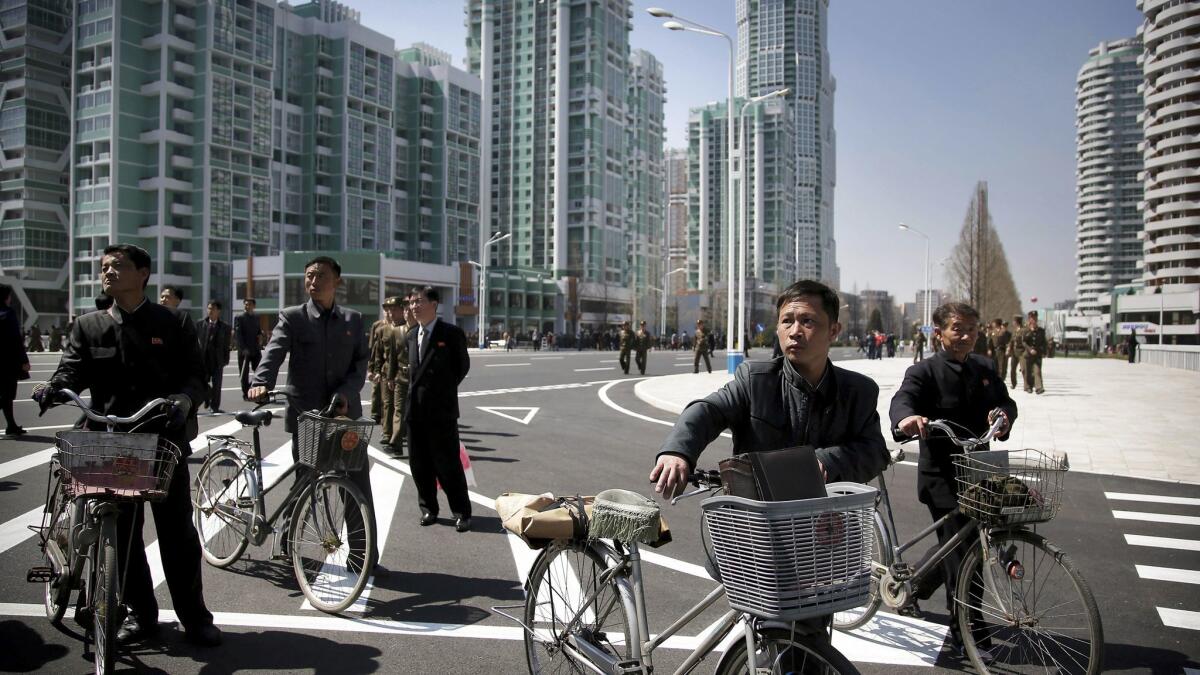
“The mode of the respected leader Kim Jong Un is to improve the living standards of the people,” one official told me. “It’s to show that even if the U.S. places sanctions on us, we can still move forward at tremendous speed.”
People soon began filing in, until the square was a sea of dark suits, military uniforms and colorful dresses. I saw thousands of soldiers; many were heartrendingly small and thin, a reminder of the malnutrition that remains widespread outside the capital.
At about 9:30, Kim Jong Un arrived in a black Mercedes limousine. The crowd roared. The country’s prime minister gave a speech. After about 15 minutes, Kim stepped back into his limousine. He never said a word.
When he departed, the applause abruptly stopped. It echoed for several seconds, as if within a vast stone church.
What do you do for fun?
North Korea is perhaps the world’s foremost post-truth society. Most citizens cannot access the Internet, or unfiltered foreign information of any kind. Domestic media exists only to glorify the country’s leaders, or rehash ideological dogma and grievances against South Korea and the U.S.
Our minders constantly hovered over us, openly surveilling our cameras and notebooks. We had no recourse — even our minders had minders. They’d taken our passports on arrival. If they caught us photographing something forbidden — an off-duty soldier, a particularly revered political portrait — they didn’t hesitate to forcibly delete our photos.
Everything raised questions. Who decided our itinerary, and why didn’t our minders ever seem to know it until the last minute? Why were we allowed to photograph some portraits of the Kims, but not others? What was the average salary in Pyongyang? The minders didn’t know, or wouldn’t tell us.
In the absence of information, we formed our impressions through visual details, the cadence of conversations, the hum of Pyongyang’s city life.
Through the bus window, we observed the city’s old-fashioned bicycles, its pastel-colored mid-rises, its construction sites and rail depots. Experts had told me that the country’s economy was improving, and it appeared to be true. New cars lined the streets. Women wore high heels; men wore sneakers. Some rode electric bicycles, cellphones pressed against their ears.
“Do you believe in God?” my minder suddenly asked me as we sat on the bus. It was a surprising question — North Korea is an officially secular state, where religion is severely restricted.
“Not really,” I replied. “Do you?”
He paused, and smiled. “I believe in Juche revolutionary ideology,” he said, referring to Kim Il Sung’s ideology of self-reliance.
I laughed, and he laughed too.
We chatted about ourselves — our jobs, our families, our friends and relationships. He agreed to interpret several interviews with ordinary Pyongyang residents. I asked them about the U.S.-North Korea relationship, and they responded with state-sanctioned lines about “U.S. imperialist aggression” or “the benevolence of the respected Supreme Leader Kim Jong Un.”
Yet other questions elicited incoherent answers or blank stares. Nobody could explain what they did for fun. A woman expressed her hope to someday visit Mt. Paektu, North Korea’s holy mountain. A man said that he was an architect. I could find no better way to ask the question, so I changed the subject.
Missile launch? What missile launch?
Saturday’s military parade was a blur of color and noise. For two hours, Kim stood and waved from a high rostrum, overlooking an endless procession of tanks, missile-bearing trucks, and soldiers who goose-stepped with such precision that the ground shook. Civilians marched by clutching North Korean flags, their necks craned towards Kim. They shouted “long live,” tears streaming down their faces.
Analysts expected North Korea to mark the holiday with a missile or nuclear test — and sure enough, the following morning, U.S. and South Korean officials reported that North Korea had tested a missile, though it fizzled shortly after takeoff.
In the U.S., talking heads debated the prospects of war. Yet North Korean state media didn’t announce the test — it never reports on failures. For ordinary North Koreans, it simply never happened.
That afternoon, at the Pyongyang Zoo, hundreds of middle-class Pyongyang residents filed past healthy-looking seals, hippos and orangutans. Three little girls petted a tortoise, their eyes filled with wonder, as their mother snapped pictures. No military marches piped in through speakers, and no portraits of dictators adorned the walls.
You can’t fake this, I thought. These were real people with loving families, having genuine fun. Some of them were almost certainly the same people I’d seen sobbing at the parade. The thought filled me with sadness.
Departure board goes dark
On Monday, my minder and I said goodbye. He returned my passport, and I stepped through immigration.
An hour after the departure board went dark — and just as we began wondering how we’d spend the night — it flickered back to life. An airline employee announced that all flights would depart immediately. She gave no further information — no explanation, no apology. We boarded the tired-looking Tupolev jet, and held our breaths as it shuddered down the runway.
This time, when we crossed the Yalu River and the flight attendant praised Kim Il Sung’s “revolutionary exploits,” the words filled me with relief.
For more news from Asia, follow @JRKaiman on Twitter
ALSO
At a school for orphans in North Korea, the wall decor is all about tanks and ICBMs
North Korea puts its long-range missiles on parade in massive military show
North Korea says it’s ready for war, but Pyongyang remains a city of orderly calm
More to Read
Start your day right
Sign up for Essential California for news, features and recommendations from the L.A. Times and beyond in your inbox six days a week.
You may occasionally receive promotional content from the Los Angeles Times.
